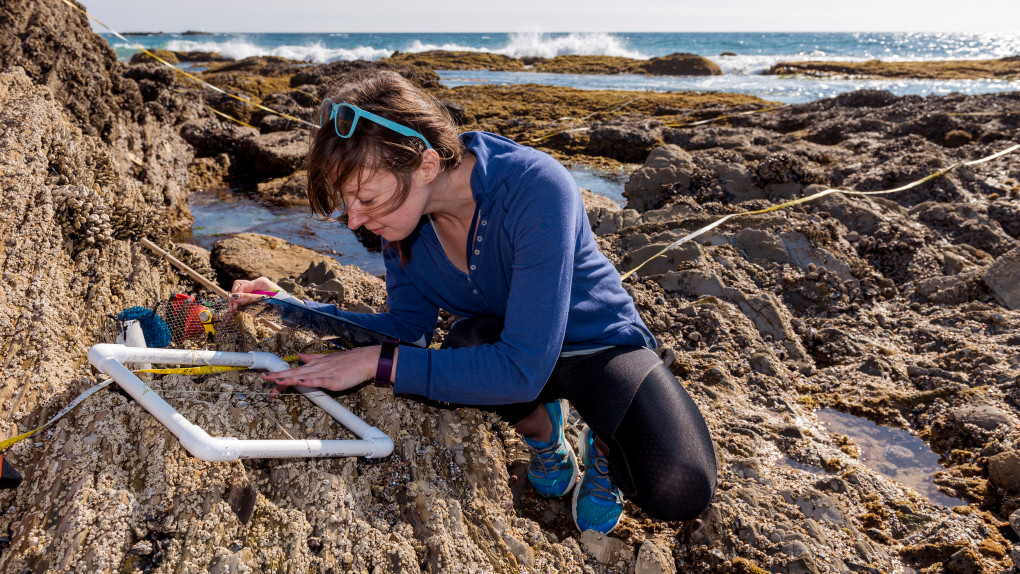
UCI Ecology and Evolutionary Biology PhD student Piper Wallingford uses a one square-foot frame divided into quadrants to take a survey of the variety of mussels, barnacles and others species on the tide pool rocks at Crystal Cove State Park in Newport Beach on Thursday, Feb. 15, 2018 as part of a study how climate change impacts tidal pools. (Photo by Leonard Ortiz, Orange County Register/SCNG)
A hunt for the invasive dark unicorn snail shows UCI students how climate change is altering Crystal Cove tide pools
By LAUREN WILLIAMS | [email protected] | Orange County Register
Much of climate change research is focused on the big problems. Models forecast how quickly polar ice caps are melting in the Arctic and whether rising sea levels might drown entire islands in the South Pacific.
But two doctoral students working in the Sorte Lab at UC Irvine are searching for smaller signs of climate change in the tide pools of Orange County beaches. These subtle, incremental adjustments to the environment are hard to track, but Lauren Pandori and Piper Wallingford know just what to look for.
They’re looking for unicorns.
On a recent Thursday afternoon at a certain stretch of Crystal Cove frequented by sunbathers and vacationers, Pandori and Wallingford crouch over measuring tape stretched across a jagged outcropping, keeping their eyes peeled for the dark unicorn snail.
“I think ‘If I were a snail where would I hide?’” said Pandori, 25. “It’s very calming work.”

